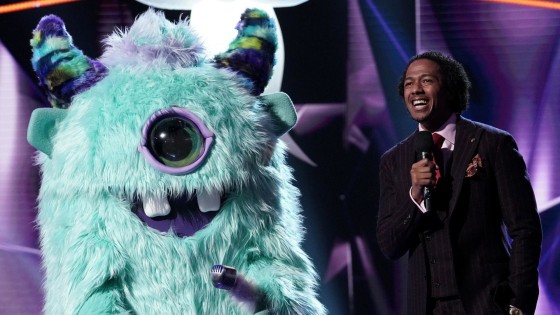In the current era of television, it is rare for a show that isn’t being billed as a prestige drama to become an overnight sensation. Reality shows, which are cheap as hell to make, have rapidly filled the cable wasteland space, but rarely command attention. So when “The Masked Singer” premiered last week with nearly 10 million viewers over on Fox, it wasn’t just a surprise. It was shocking. And yet, one look at the current television landscape shows why this series was the predictable next step in reality-competition programming.
SIGN UP FOR THE THINK WEEKLY NEWSLETTER HERE
Reviewers have noted how bizarre “The Masked Singer” feels, with its frankly unique concept of singing celebrities hidden in elaborate costumes. More than one review has suggested it’s the type of show one would expect to appear in the background of a creepy movie set in a future (dystopian) America. But future America is here, the dystopia is happening, and the planet is probably just a generation away from cataclysm. This is the show that should be playing in the background of now.
“The Masked Singer” makes even more sense when you look at where reality performance competitions have been heading over the past decade.
“The Masked Singer” makes even more sense when you look at where reality performance competitions have been heading over the past decade, as America steals more and more ideas from popular shows overseas. When “The Voice” (a remake of the Danish “The Voice of Holland”) first supplanted “American Idol” (remade from “Pop Idol” in the UK) as the most popular singing competition, it made celebrity judges more important than the unknowns competing. This was already true in the world of reality dance competitions, where “So You Think You Can Dance” (“Idol,” remade for dancers) had fallen behind “Dancing With The Stars” (henceforth DWTS, a direct import from the UK where the show is known as “Strictly Come Dancing”).
But this focus had a downside, as DWTS eventually discovered. In our polarized climate, celebrities have become ideological lighting rods, and voting for fan favorites has become a proxy war over political beliefs. Over the last few years, DWTS voting in particular has been skewed by political factions pushing their competitor much farther than he or she should go. Bristol Palin making it to third place in season 11 was the first sign of trouble, but country radio star DJ Bobby Bones’ win this year upset fans so much DWTS is taking the spring cycle off to recover and regroup. And bias creeps into the competitions in other ways as well. Since Kelly Clarkson joined “The Voice” as a mentor, for example, she has won every cycle, her popularity eclipsing all other comer, no matter their singing talent.
“The Masked Singer,” based on the South Korean competition series “King of Mask Singer,” instantly solves this issue by taking away the one thing celebrities have going for them: their identity. By rendering them as helpless as any “Idol” newbie, celebrities must find a way to project personality through their ludicrous costumes as well as sing. Not that singing talent is wholly required, but it is notable that the first week’s dismissal was Antonio Brown, a football player of zero vocal talent and a merely mediocre hippo costume.
The judging table is also less glitzy then other shows, filled as it is with non-costumed “C-listers” like Robin Thicke, known as much for his songs being on the losing end of plagiarism lawsuits as they are catchy (and creepy); Jenny McCarthy, a 1990s TV actress, noted anti-vaxxer and anti-science advocate; Ken Jeong, a former physician who gave it all up for a mid-range comedy career; and Nicole Scherzinger, who the music industry desperately tried to make happen, until one day it didn’t. These are celebrities one sort of recognizes — and potentially dislikes — without necessarily knowing why.
But that’s the point. Their guesses as to who are under the masks are utterly useless. Unlike “The Voice,” “DWTS,” or “Idol,” the judges are not there to command our respect. They are there to make the viewers feel smarter.
Combine that with the over-the-top costuming perfect for our meme culture and easy for other shows to reference, and one has a hit. The diverse nature of the contestants makes cross-promotion easy. For instance, though the series airs on Fox, ESPN, owned by rival company Disney, had anchors wearing costumes periodically all last week, because at least two of the celebrities competing this season are sports figures. Commercials for the show also ran during NBC Universal’s WWE broadcasts, because at least one is a wrestling figure. Everyone makes money, or at least gets exposure, from the insanity.
Unlike “The Voice,” “DWTS,” or “Idol,” the judges are not there to command our respect. They are there to make the viewers feel smarter.
Speaking of which, Fox — the broadcast channel bit that wasn’t bought by Disney — is increasingly turning to live sporting events, multi-camera sitcoms and endless cheap reality shows now that it doesn’t have the backing and resources of 20th Century Fox. “The Masked Singer” is a perfect fit, given that everything from the venue to the production value suggests as little money as possible went into making the entertainment.
It’s Five Guys for the eyeballs: tastes great, but let’s not think about what it’s doing to our bodies. 2019 may already feel like it will be as long as 2018, but at least there's something sublimely ridiculous for us to stare at, especially this week when the pineapple turns up. Personally, I am 100 percent sure the deer is Chris Jericho and I think the lion is Paris Jackson. How about you?
